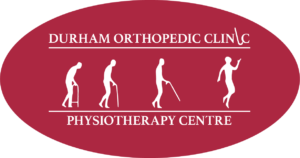In today’s fast paced world, stress can feel like a constant companion. Whether it’s work pressure, family responsibilities, or simply the demands of daily life, many of us are carrying more stress than we realize. Massage Therapy is one of the most effective and natural ways to manage that stress.
What Does Stress Do to the Body?
Stress isn’t just psychological, it impacts your body in powerful ways. It can:
- Tighten muscles
- Disrupt sleep
- Increase blood pressure
- Weaken the immune system
- Cause headaches, fatigue, and anxiety
Over time, chronic stress can contribute to more serious conditions like heart disease and depression.
How Massage Therapy Helps
Massage therapy offers a safe, noninvasive way to reduce stress and rebalance your body. It does this in a few ways.
1. Reduces Muscle Tension
Stress often shows up physically as tight shoulders, a stiff neck, or lower back pain. Massage therapy targets these areas, helping muscles release built up tension and improving overall mobility.
2. Promotes Relaxation
Massage activates the parasympathetic nervous system, your body’s “rest and digest” mode. This slows your heart rate, lowers blood pressure, and signals the body to relax.
3. Boosts Mood
Massage stimulates the release of feel-good hormones like serotonin and dopamine, while reducing cortisol, the stress hormone. Many clients leave a session feeling calmer, lighter, and more balanced.
4. Improves Sleep
By easing physical tension and calming the nervous system, massage can improve sleep quality, a vital component of stress recovery.
5. Encourages Mind Body Awareness
Taking an hour for yourself, focusing on your body, and being present can all contribute to a greater sense of control and well-being, something we often lose during stressful periods.
Best Massage Techniques for Stress Relief
Some techniques are particularly effective for stress:
- Swedish massage: Gentle, flowing strokes to promote relaxation
- Deep tissue massage: Targets deeper layers of muscle to relieve chronic tension
- Head, neck, and shoulder massage: Ideal for desk workers and tension headaches
- Aromatherapy massage: Combines essential oils with massage for enhanced calming effects
How Often Should You Get a Massage?
For stress relief, consistency matters. Even one massage per month can make a difference, but weekly or biweekly sessions are ideal during high-stress periods.
Book Your Massage Therapy Today
If stress is affecting your body or your quality of life, massage therapy might be the reset you need. At Durham Orthopedic and Sports Injury Clinic, our registered massage therapists tailor each session to your needs, helping you relax, restore, and feel like yourself again.
Contact us today to schedule your appointment.


